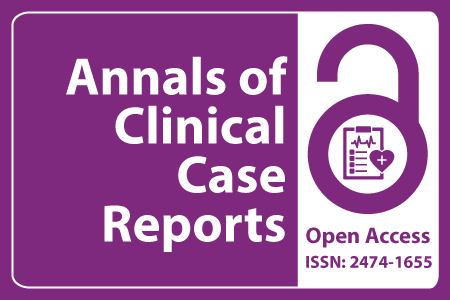
Journal Basic Info
- Impact Factor: 1.809**
- H-Index: 6
- ISSN: 2474-1655
- DOI: 10.25107/2474-1655
Major Scope
- Biochemistry and Biostatistics
- Nutrition and Food Science
- Infectious Disease
- Hepatology
- Cardiac Surgery
- Microbiology
- Emergency Medicine and Critical Care
- Palliative Care
Abstract
Citation: Ann Clin Case Rep. 2022;7(1):2224.DOI: 10.25107/2474-1655.2224
Herpes Zoster Ophthalmicus Reactivation after mRNA 1273 Vaccination
Ashraful Hoque1* and Hossain Imam2
1Department of Blood Transfusion, Sheikh Hasina National Institute of Burn & Plastic Surgery, Bangladesh 2Department of Burn & Plastic Surgery, Sheikh Hasina National Institute of Burn & Plastic Surgery, Bangladesh
*Correspondance to: Ashraful Hoque
PDF Full Text Case Report | Open Access
Abstract:
Background: Clinically two different types of Varicella-Zoster Virus (VZV) infection are found commonly. Varicella (chickenpox) is caused by primary infection, and Herpes zoster, also known as shingles, is caused by reactivation of latent VZV that gained access to sensory ganglia during varicella. Reactivation is influenced by age-related immune-senescence, iatrogenic immunosuppression or disease-related immune-compromise state. As a vaccine can cause Immune Reconstitution Inflammatory Syndrome (IRIS), it can also reactivate VZS. Case Report: We discovered an elderly male (62 years old, Bangladeshi) with a painful blister around his right eyeball, as well as blurred vision in that eye. Examination found decreased visual acuity with hyperemia and edema in the eyelid and conjunctiva. He was found to have Herpes Zoster Ophthalmicus (HZO). Herpes zoster is a reactivation of the varicella-zoster virus, most commonly seen in the elderly and immunosuppressed, with incidence estimates ranging from 1.25 to 5.25 per 1,000 person-years showed in different studies. If patients are not treated promptly and aggressively, HZO with intraocular involvement can significantly impair visual vision. Our patient recovered entirely after getting proper treatment. Conclusion: No vaccine is 100% safe, and intense surveillance to assess the vaccine safety for the detection of any event which could attenuate the expected benefits, and thus to take any necessary action to minimize risks to vaccinated individuals.
Keywords:
Reactivation; Herpes Zoster Ophthalmicus; Immunocompromised; Vaccine
Cite the Article:
Hoque A, Imam H. Herpes Zoster Ophthalmicus Reactivation after mRNA 1273 Vaccination. Ann Clin Case Rep. 2022; 7: 2224..













